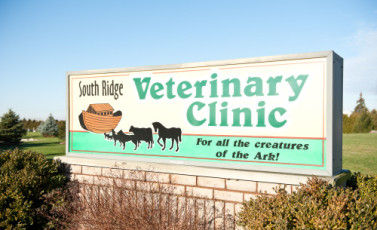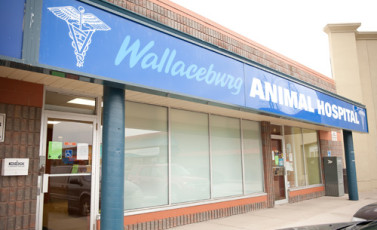The Risk is Real: Rabies & Your Pet
The Risk is Real: Rabies & Your Pet
A recent incident in Hamilton, Ontario has been a sobering reminder that the risk of Rabies is real, and carries serious public health ramifications. One family has been faced with the heart-wrenching possibility of euthanizing their two adult dogs.
Through a series of unfortunate events, the dogs escaped from their yard and were captured by Hamilton Animal Control.
While in the custody of Animal Control,there was an altercation between the dogs and a raccoon that resulted in bite wounds on both of the dogs. The raccoon was euthanized due to its aggressive behaviour, and test results came back positive for Rabies. Admittedly, the protocols that allowed this incident to occur, should be investigated and revised, but the fact remains that these two dogs were not properly immunized for Rabies.
Rabies vaccine is required by law for all canine and feline pets in Ontario. As stated on the Ontario Ministry of Agriculture, Food & Rural Affairs website: “Under the Ontario Health Protection and Promotion Act, Regulation 567, pet owners are legally required to keep dogs and cats over three months old vaccinated for rabies in 31 of the 36 Public Health Units in the province (i.e. all but the 5 northern-most units). Vaccination not only protects your pet from infection with rabies, but also helps protect you and your family if your pet is exposed to the virus by contact with a wild animal. http://www.omafra.gov.on.ca/english/food/inspection/ahw/rabies.htm#8
Wildlife, including skunks, foxes and raccoons, are the terrestrial carriers of the Rabies virus. Any pets coming in contact with such wildlife may be at risk for disease. Even our indoor feline friends, the kitties who spend their days lazing on the couch, do not get a free pass. Although there have not been any cases of terrestrial rabies in Ontario in the past decade, 18 cases of bat rabies were identified in 2014 alone. Many instances of bats flying into houses have been reported over years, thus bringing the risk of Rabies into our homes.
A CTV news report online quoted Chris Davies, head of wildlife research with the Ministry of Natural Resources and Forestry, saying “a team of officers will drop rabies vaccine baits in farmland,
green spaces and ravines in Hamilton after a raccoon tested positive for the disease following the scrap with the two bull mastiffs.”
https://news.ontario.ca/mnr/en/2015/12/rabies-vaccine-bait-drop-protects-public-health-in-hamilton.html
While wildlife officers are implementing protocols to reduce the spread of this fatal disease, it is our responsibility as pet parents to ensure our beloved fur friends are up to date on their Rabies
vaccines. Our qualified members of the Chatham-Kent Veterinary Team is here to help families with a comprehensive plan for primary series and booster vaccines. For the moment, the Hamilton story does not have a tragic ending (with the exception of the raccoon’s fate), but it will be months before the family has any peace of mind. The dog’s fate will remain in limbo, with both pets being held in quarantine, away from their family, being monitored for any neurological signs that may indicate they have become infected with the Rabies virus.
For on-going coverage of the Hamilton story, keep an eye on www.ctvnews.ca.



